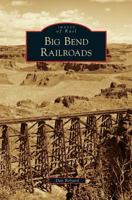Ephrata
The first permanent settlers near what is now Ephrata were the Egbert brothers, who arrived in 1882. In 1886, they sold their deeded land to horseman Frank Beezley, who developed the land around the spring into a large ranch with lush hay fields, orchards, and gardens. The area became known as Beezley Springs, and the hills west of town are still called Beezley Hills. When a new county, Grant, was sliced off of the formerly vast Douglas County in 1909, Ephrata was named the new seat, which ensured the growth of the town. The iconic courthouse, built in 1918, still stands today. The US Army Air Forces arrived in 1942, and the town boomed. While the base in the area only operated for a few years, the hangars and runways still stand. Today, the USO building serves as the Ephrata Recreation Center. In the 1950s, with the advent of irrigation, the town grew from a dusty, dry place to one with many nearby farms. The US Bureau of Reclamation went through a few buildings in town, and the agency is still using the biggest one.
Format:Paperback
Language:English
ISBN:146710521X
ISBN13:9781467105217
Release Date:October 2020
Publisher:Arcadia Publishing (SC)
Length:128 Pages
Weight:0.70 lbs.
Dimensions:0.4" x 6.5" x 9.1"
More by Dan Bolyard
Customer Reviews
0 customer rating | 0 review
There are currently no reviews. Be the first to review this work.






















